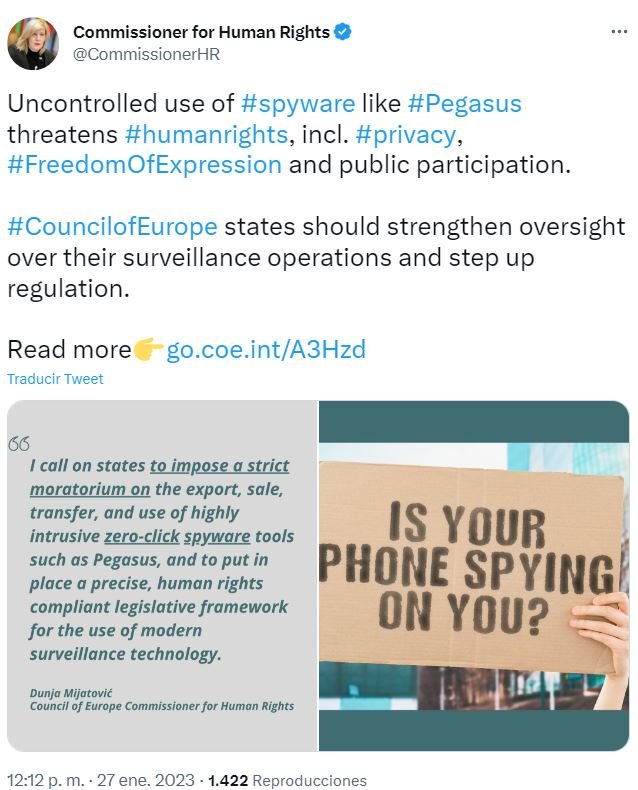The Council of Europe's human rights commissioner Dunja Mijatović says she is "alarmed" by the illegal use of Pegasus spyware by some countries. In a lengthy statement on this still-emerging espionage development, Mijatović has expressed concern about "evidence" that the Israeli-built software has been used for "national and international espionage rather than legitimate public security issues." "I am alarmed about the impact of powerful hacking tools that grant complete and unrestricted access to someone’s private life," says the commissioner for the 46-member European body, stressing that the illegal use of Pegasus is a violation of the right to privacy and data protection."The use of spyware has a chilling effect on other human rights and fundamental freedoms, including freedom of expression and public participation. It creates a climate of self-censorship and fear where all individuals can be treated as suspects and where human rights defenders and active members of political life are particularly threatened," Mijatović warns. She notes that multiple inquiries on the issue are "still ongoing" - linking to the European Parliament's Pegasus committee which is to send a mission to Spain in March - and demands that states fulfill the "obligations" of the European Convention on Human Rights.

At the same time, Mijatović demands that the rules for authorizing espionage must be "precise and clear as to the offences, activities and people subjected to surveillance." And she expresses grave concerns about the "uncertainty" over the legitimacy of objectives in such cases. "Spyware appears to have become an integral tool of state repression against human rights work, in most cases using national security considerations as a pretext," she points out, criticizing the lack of "transparency and cooperation" on the part of governments.
You can read the Council of Europe commissioner's full statement in English here.
European Parliament to send a mission to Spain over Pegasus use
On Tuesday, the EU chamber gave the go-ahead to a two-day mission to Spain in March to investigate espionage with Pegasus in the country. The European Parliament's specially-created Pegasus committee had previously made investigative visits to several other EU member states where the spyware has been used - Poland, Greece and Cyprus - but despite clear evidence of major Pegasus use in Spain, an agreement on sending a mission to Spain proved elusive. The committee's draft report, released in November, commented on the failure of the Spanish authorities to cooperate with its attempts to advance the investigation, and even so indicated that all the evidence pointed to the Spanish state's responsibility in the large-scale use of the spyware against the Catalan independence movement.
After the delaying tactics used by Spain, it appeared that an EU mission to the country would be impossible, with the committee's one-year mandate fast running out. However, the decision to extend the life of the committee for another three months has enabled further missions to be programmed - to Hungary in February, and then to Spain. Specifically, the mission to Spain will take place on March 20th and 21st. It will investigate both the Catalangate affair involving the surveillance of at least 60 people close to the independence movement, and the separate use of Pegasus against three Spanish government members, of which the Moroccan state is the main suspect. The mission will be based in Madrid and will not travel to Catalonia.

